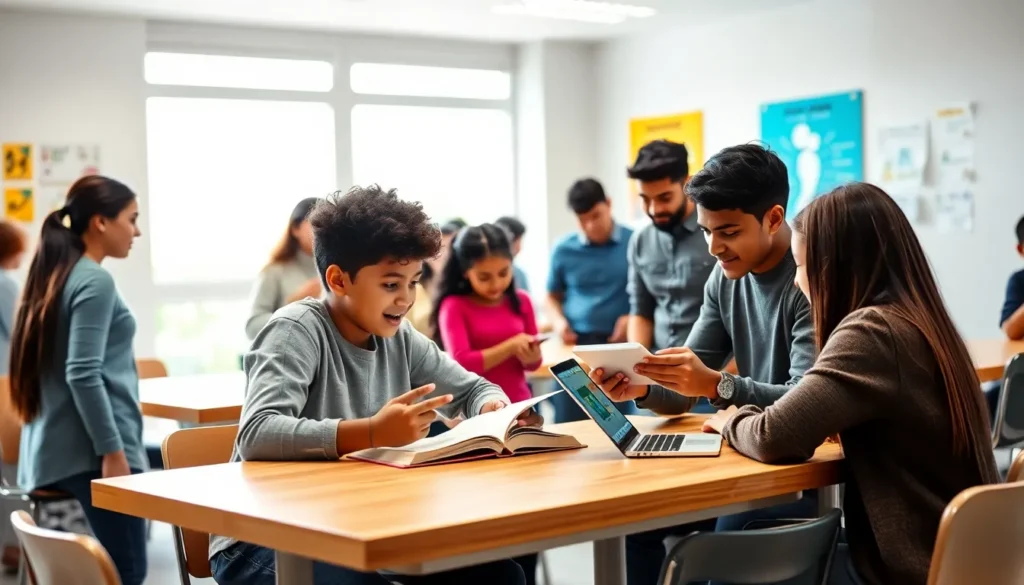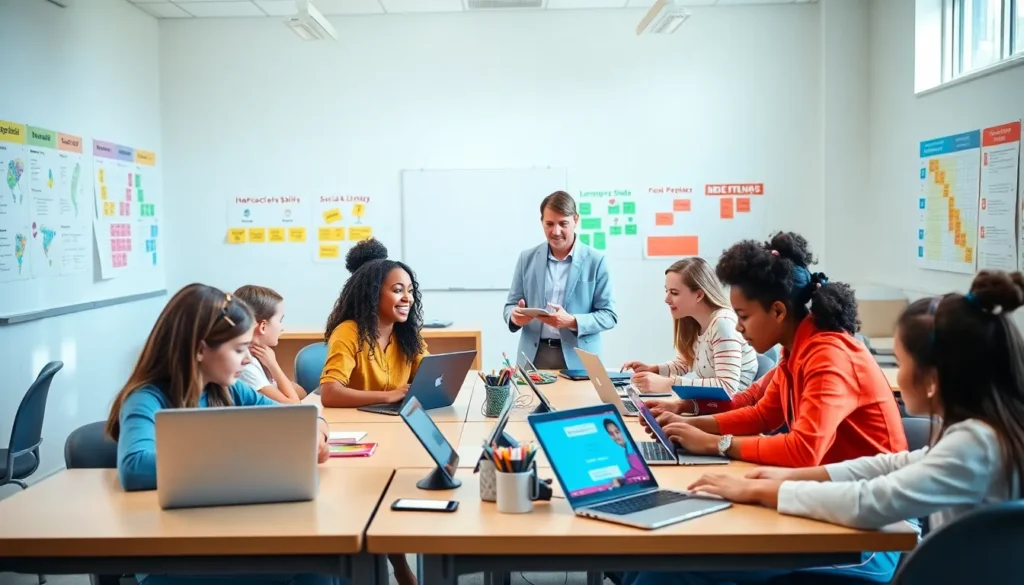Table of Contents
ToggleImagine a world where language isn’t just a skill, but a superpower. Learning language and literacy opens doors to endless opportunities, enriches lives, and can even help us navigate through life’s little hurdles. Who doesn’t want to impress their friends with newfound linguistic prowess, or at least not mangle a foreign order? Let’s unravel the significance of these skills and why they should be on everyone’s radar.
The Importance Of Language And Literacy

Language and literacy are not mere tools: they are foundational building blocks of knowledge and communication. When someone develops these skills, they embark on a journey filled with cognitive benefits and social empowerment.
Cognitive Benefits Of Language Learning
Delving into language learning fuels the brain like a gym session for the mind. Studies have shown that it enhances cognitive abilities, making tasks like problem-solving and critical thinking second nature. The more languages one learns, the better they can navigate complexities in life. It’s like upgrading from a bicycle to a sports car: things just get faster and more efficient.
Social Impact Of Literacy Skills
Now, consider literacy as the ticket to social engagement. Literacy opens doors to an array of social opportunities, from reading a thought-provoking article to participating in community discussions. Without it, individuals might feel isolated, unable to fully engage with their environment. A literate society thrives: connection builds understanding, turning mere acquaintances into lasting friendships.
Key Components Of Language Acquisition
Understanding language acquisition involves dissecting its crucial components. They form the backbone of effective communication, laying the groundwork for mastery.
Listening And Speaking Skills
Listening and speaking are the dynamic duo of language skills. Engagement starts with listening, absorbing sounds, rhythms, and nuances. Once that foundation is built, it transforms into the ability to articulate thoughts clearly. Those who develop strong listening and speaking skills often find themselves adept at navigating conversations with ease.
Reading And Writing Development
Equally important are reading and writing skills. Reading opens up entire worlds of imagination and information, while writing allows individuals to express themselves creatively. Together, they create a comprehensive understanding of the language, empowering individuals to share ideas and connect with a wider audience.
Effective Strategies For Language Learning
To embark on language learning, one needs effective strategies, think of them as tools in a toolbox. Each one plays a distinct role in crafting successful outcomes.
Using Technology To Enhance Learning
Technology has transformed the landscape of language acquisition. Mobile apps, online courses, and interactive websites provide learners with tools and resources previously unimaginable. They make learning accessible and fun, immersing users in a virtual language experience anytime, anywhere.
Interactive Activities And Games
Besides, interactive activities and games can make language learning feel like a breeze. Trivia games, role-playing scenarios, and fun challenges enhance retention and motivation. Engaging the competitive spirit, whether in groups or individually, creates a lively atmosphere where learning flourishes.
The Role Of Educators And Parents
Educators and parents are crucial allies in the language learning journey. Collaboration and support can significantly impact a learner’s experience.
Collaboration In Language Learning
Teachers and parents who work together create a unified front for the child’s learning. Sharing ideas and resources fosters an environment where language skills can thrive. When educators understand a child’s home environment, they can tailor learning approaches that resonate more effectively.
Creating A Supportive Learning Environment
A supportive atmosphere at home and school empowers learners to take risks and explore language without fear of failure. Celebrating small victories creates a sense of achievement, which fuels further learning. Encouragement can turn quiet hesitation into confident exploration.
Future Trends In Language And Literacy Education
The landscape of language and literacy education is continually evolving, driven by innovations and shifting societal needs.
Emerging Technologies In Language Learning
Emerging technologies, such as augmented and virtual reality, are rewriting the rules of engagement. Imagine stepping into a virtual marketplace where you could practice your conversational skills while bartering for goods: how immersive would that be? These technologies captivate learners and offer realistic environments to practice language in context.
The Global Perspective On Literacy
Also, the global perspective on literacy continues to grow. As communication transcends borders, a multilingual approach is increasingly valued. Schools are recognizing the importance of fostering bilingual or multilingual skills to prepare students for a globalized world, allowing them to connect with diverse cultures and perspectives.







